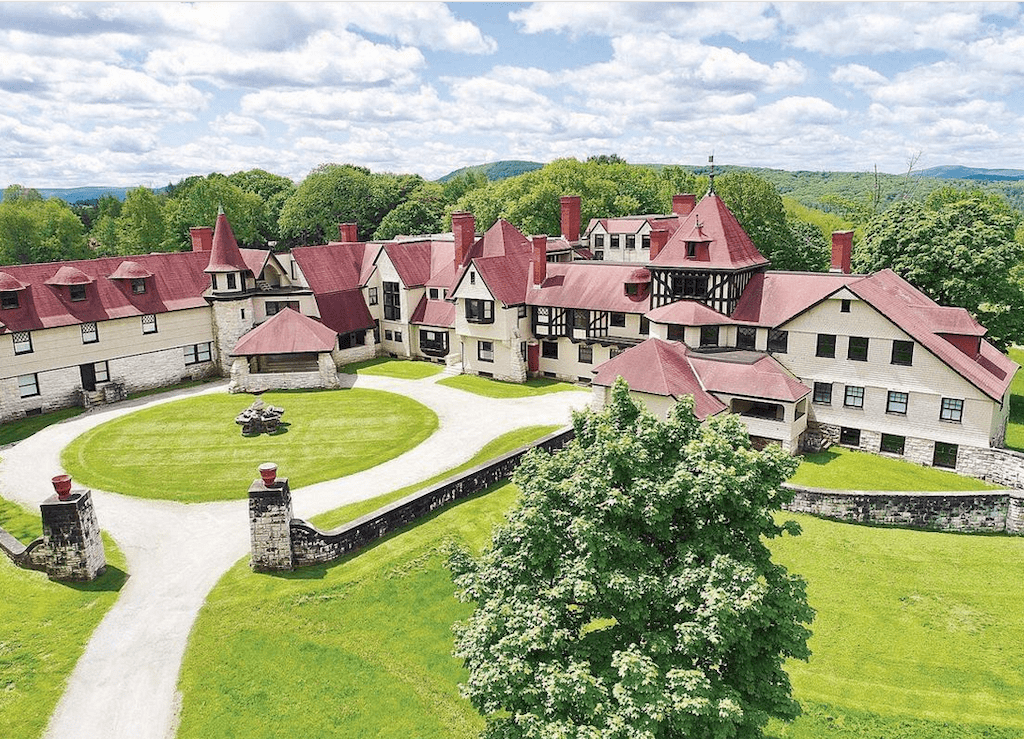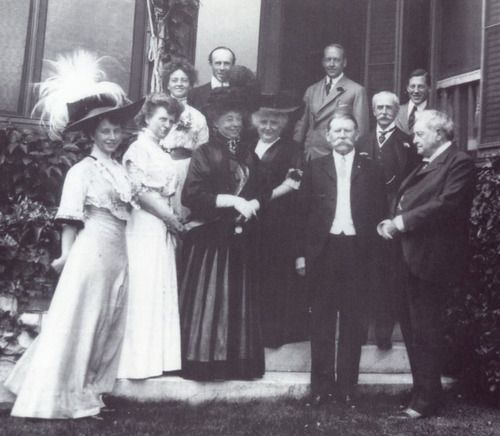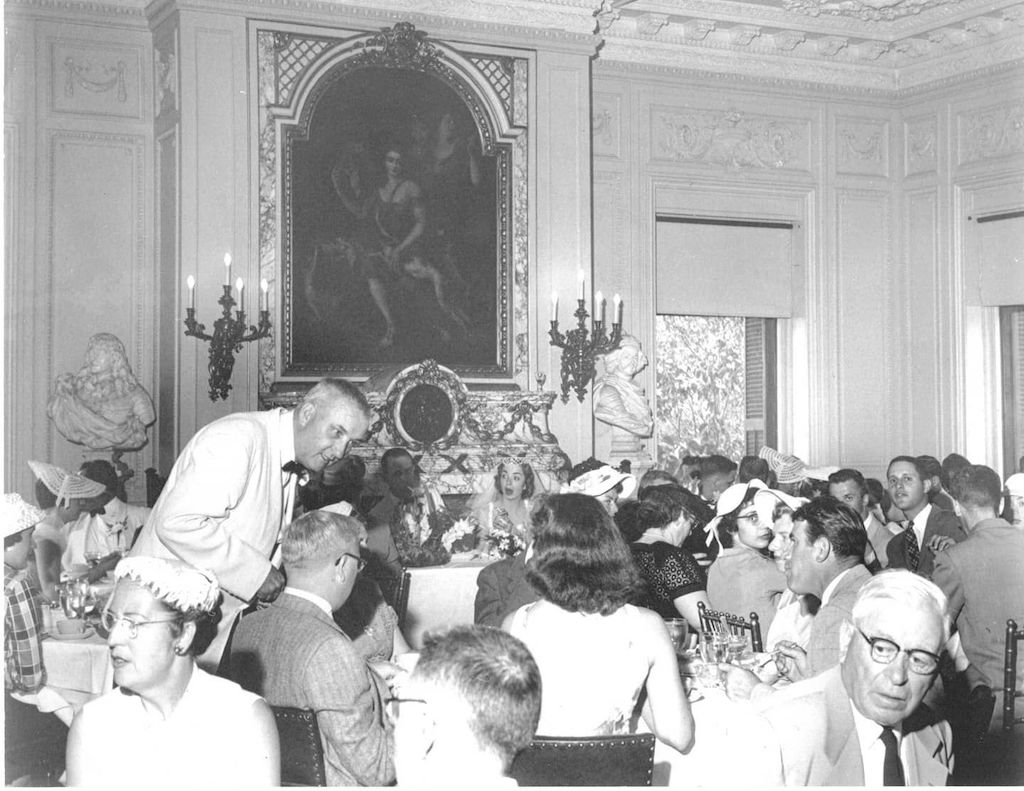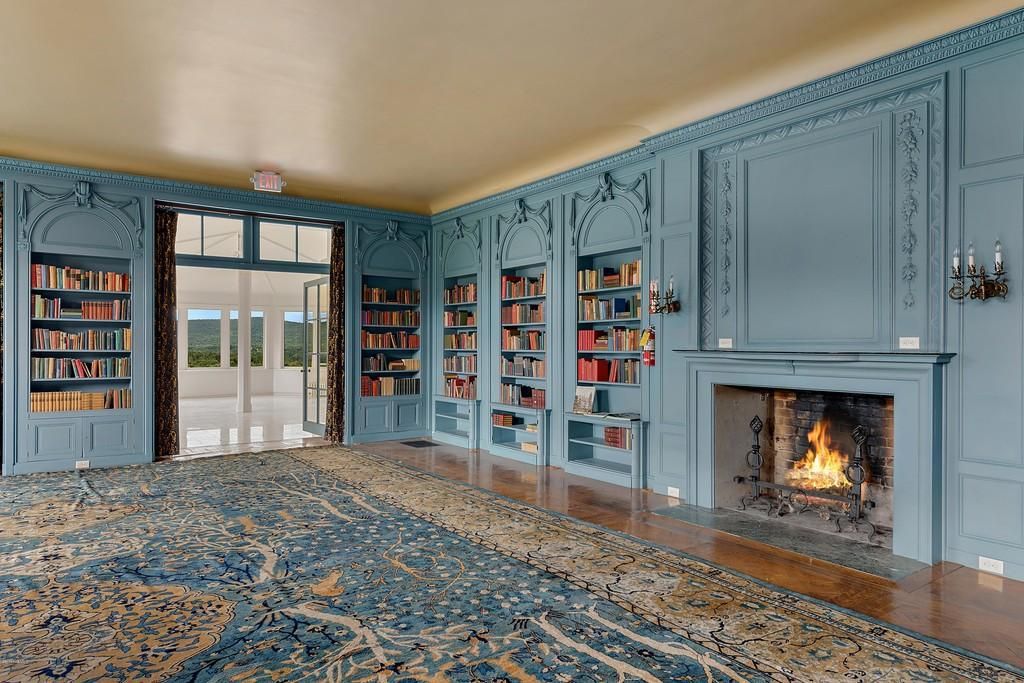
In Massachusetts in the late 1800s, the Berkshires-a rural mountain region-was a prime spot for the Gilded Age wealthy to show off their money by building extravagant mansions, or “summer cottages” as society’s upper class called them. Most of these mansions have been lost to fire or demolished as impractical for a family to manage and finance. One of the biggest and best-lasting homes, Vanderbilt Berkshires Estate-formerly Elm Court- just sold for $8 million to real estate investor and developer Linda Law. The home is being restored and may be transformed into a luxury resort development. Possibilities for the resort include 112 guest rooms, a 15,000-square-foot spa, and a 60-seat restaurant.

Built in 1886 for Emily Vanderbilt, granddaughter of Cornelius Vanderbilt, Elm Court was designed by the architectural firm Peabody & Stearns with the grounds including 40 acres of gardens created by the eye of Frederick Law Olmstead, who is well known for his work on New York’s Central Park. The estate is about the same size as The White House, with 55,000 square feet and 106 rooms, the largest shingled-style home in the United States. A less ornate style than the Vanderbilt family’s more famous Biltmore House in North Carolina, the 89-acre estate is so big that it spans two towns, Stockbridge and Lenox, Massachusetts.
Elm Court’s shingle style evolved from America’s New England architectural movement of the late 1800s, modeled after Colonial American architecture. The home, which is registered as a National Historic Landmark, got its name form a large elm tree that stood at the entrance to the mansion, but later succumbed to disease. The estate has served as a host to some of the world’s most important business and political leaders, being the meeting site for the Elm Court Talks in 1919-which led to the creation of the Treaty of Versailles and the League of Nations.

To keep up with the steep costs of keeping the large property running after the passing of its original owners, their children turned it into an inn in the late 1940s. During the 1950s, it hosted events, dinners, and overnight guests. Elm Court finally closed its doors and was boarded up until 1999 when descendants of Emily Vanderbilt began to renovate the estate. It operated for a few years in the early 2000s as a wedding-event space, but then was closed for the second time.
Much of the renovation of Elm Court has been finished with the main living areas and 13 of the bedrooms completed. Many original details such as the intricately carved plaster ceiling in the dining room, the herringbone wood floods, and the fireplaces have been preserved. The estate can serve as a place for various kinds of gatherings, there is a large mahogany butler’s pantry with a charming window seat and room for casual dining as well as rooms spacious enough for grand-scale entertaining. The grounds contain more buildings including the larger butler’s house, gardener’s cottage, and multiple long greenhouses with one being large enough to grow tall fruit trees. Additionally, there is a caretaker’s house, carriage house, stable, and two barns.
“Collectively, we have done a tremendous amount of research on the architecture and design of the Gilded Age and the history of the Vanderbilt family, and we feel a tremendous responsibility to pay homage to its legendary past,” said Law according to a press release. “Equally important, we will pay the utmost attention to the historical importance of elm Court as its own entity, as well as its position and prominence in the Lenox and Stockbridge communities.”







